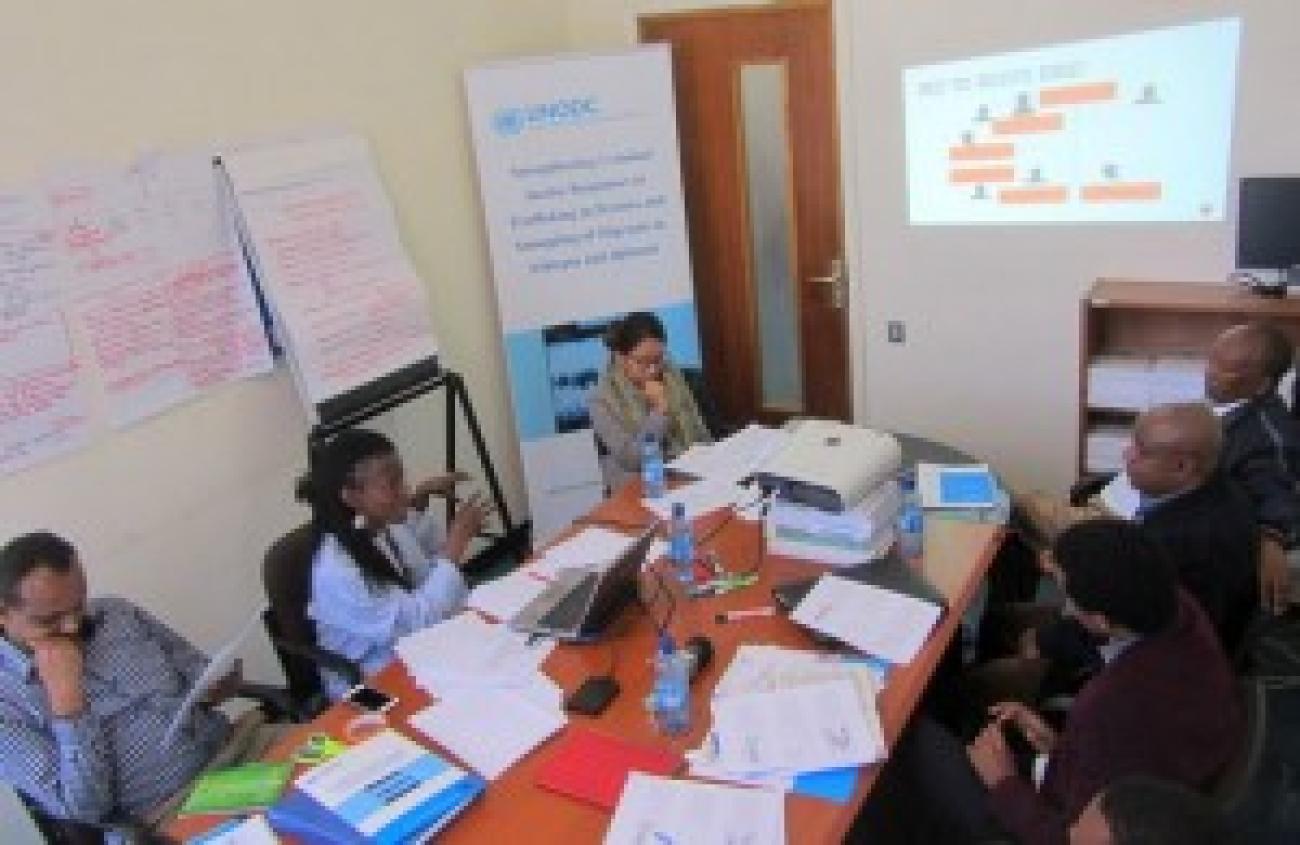UNODC Lays Out Paths to Advance Witness Protection

UNODC laid out paths to build a witness protection institution, putting different available options on the table
A State’s success in bringing criminals to justice depends for the most part on securing strong evidence. Those who would step up and give such evidence are, however, often threatened with reprisal to prevent them from speaking out. This means too many crimes go unpunished in Ethiopia and beyond.
Putting an end to impunity is a compelling need that can be largely achieved by ensuring the safety and protection of witnesses. And while witness protection may still be viewed as the missing link in the criminal justice system, it is being increasingly recognized as a means to ensure justice.
In Ethiopia, the 2011 witness protection law has not yet been put in place, partly owing to the lack of funds and expertise. That is why, building on its extensive experience working on witness protection in Africa, UNODC has set out to fill that void by providing specialized advice that is in line with international standards – in particular, with the UN Convention against Transnational Crime (UNTOC) and its protocols, and the UN Convention against Corruption.
A significant step in this direction is the working session that unfolded in the last week of July in Addis Ababa, with participants from the General Attorney’s Office and the Federal Ethics and Anti-Corruption Commission of Ethiopia. UNODC’s training addressed the series of measures on witness protection that should be applied throughout the different stages of a process – ranging from concealing the identity of witnesses while giving testimony, to safe relocation and change of identity afterwards.
Additionally, UNODC laid out paths to build a witness protection institution, putting different available options on the table. “We discussed the pros and cons of every option,” said Mr Amanuel Getachew, public prosecutor: “Whether we should go for an independent institution or for one that is under the umbrella of the Attorney General’s Office, and which option is more likely to ensure confidentiality and enhance professionalism.”
His colleague Mr Yonas Wassihun highlighted that he gained valuable knowledge about how to set up the institution. Furthermore, “This knowledge will help our high officials decide what structure is more workable for Ethiopia.”
UNODC stressed the importance of protecting witnesses as a means of fighting corruption, crime, terrorism and human rights abuses. Yet beyond ensuring justice and security, a main benefit of a witness protection institution is that, at the end of the day, “it builds public confidence in justice,” said Ms Maria Temesvari, UNODC’s Officer-in-Charge in Ethiopia. This way, she added, “individuals considering to testify against an offender will not get discouraged to do so if they are reassured that the country will look after them before, during and after a trial.”
On the contrary, “If measures are not implemented to ensure the safety of intimidated witnesses, we will not only be failing in prosecuting criminals, but we will also be undermining trust in the rule of law.”
This project is supported by the European Union
For more information, please contact
Nuria Zayas, Communication & Reporting Officer, UNODC
Email: nuria.zayas@unodc.org

